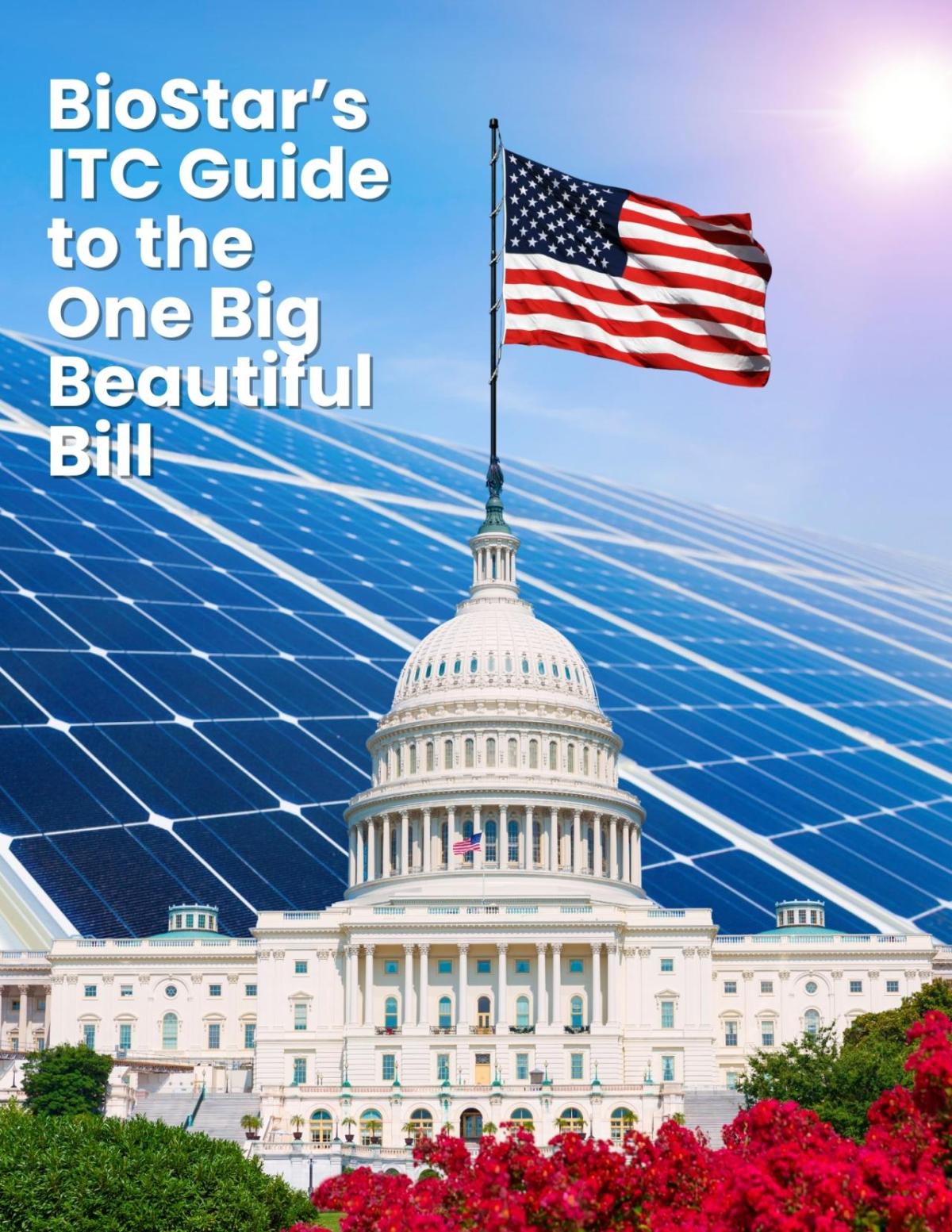BioStar’s ITC Guide to the “One Big Beautiful Bill”: A Turning Point for Solar and Storage
Transformative Legislation Reshapes the Landscape for Solar and Battery Energy Storage Systems (BESS)

On July 4, 2025, the One Big Beautiful Bill (OBBB) was signed into law—an historic piece of legislation that is reshaping America’s clean energy future. With sweeping changes to the Investment Tax Credit (ITC), domestic manufacturing incentives, and battery energy storage eligibility, the bill represents both a massive opportunity and a pressing deadline for businesses and industries across the country.
For companies considering solar or storage investments, the time to act is now. BioStar Renewables, a national leader in solar development, compliance, and project financing, has released a guide to help businesses navigate the complexity of the new law and maximize their returns.
OBBB: A Game Changer for Clean Energy
The OBBB accelerates the ITC phase-out, reshaping the economics of commercial solar. Among its key provisions:
- ITC Available Through 2027: Projects beginning construction by July 4, 2026, remain eligible, but must be completed by December 31, 2027.
- No ITC Beyond 2027: Projects that miss these deadlines lose ITC eligibility entirely.
“This law sets a ticking clock on tax credit eligibility,” says BioStar’s ITC experts. “Businesses that don’t move quickly risk losing out on millions in incentives.”
IRS Guidance: Physical Work Matters
The IRS clarified its rules in Notice 2025-42 (issued August 15, 2025). To qualify, projects must begin “physical work of a significant nature”—not just permitting or feasibility studies. Examples include installing racking systems or manufacturing custom transformers for a project.
Importantly, the safe harbor provision based on 5% spending has been eliminated for projects over 1.5 MW, meaning developers must show real construction activity to lock in tax credits.
Financial Impacts: Opportunities and Risks
The OBBB changes the economics of solar and storage in several ways:
- 100% Bonus Depreciation
- Eligible projects can deduct their full cost in year one—replacing the traditional 5-year depreciation schedule.
- Domestic Manufacturing & FEOC Restrictions
- Beginning January 1, 2026, projects using equipment from “Foreign Entities of Concern” (e.g., Chinese components) risk losing ITC eligibility altogether.
- Compliance will tighten annually, with domestic content requirements rising to 60% by 2029.
- This shift is already driving 10–40% equipment price increases as developers rush to source pre-FEOC materials.
- Battery Energy Storage (BESS) Advantage
- BESS projects remain ITC-eligible through 2033. With wholesale electricity prices projected to spike, storage-plus-solar is positioned as a high-return strategy.
The Safe Harbor Advantage
Projects that secure equipment or start construction by July 4, 2026 can lock in ITC benefits under current rules. For example, a $1 million commercial solar system can save hundreds of thousands in tax incentives and depreciation when safe-harbored on time.
Why BioStar?
Navigating the OBBB requires expertise and timing. BioStar Renewables offers:
- Innovative Financing: PPAs, leases, and loans with no upfront costs.
- Proven Track Record: Over a decade guiding projects through ITC compliance.
- Nationwide Reach: Backed by Faith Technologies Inc. (3,000+ employees).
- Strategic Action Plan: Secure domestic content, safe harbor projects by July 4, 2026, and capture the 10% domestic content ITC adder.
Act Now
The OBBB has rewritten the rules of solar and storage development, creating an unprecedented but time-limited opportunity. BioStar Renewables is ready to help businesses act quickly, avoid rising costs, and capture the full spectrum of available incentives.
Download BioStar's ITC Guide to the One Big Beautiful Bill here.
Contact BioStar today:
(913)-369-4100
BioStarRenewables.com
David Smart – [email protected]

